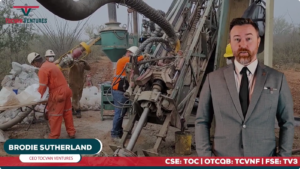Mexico is #1 silver producer in the world, #2 gold producer in Latin America, and a major copper producer.
By Don Quijones, Spain, UK, & Mexico, editor at WOLF STREET.
For a president who hasn’t taken office yet and whose government is still in waiting, Mexico’s Andres Manual Lopez Obrador (AMLO) has managed to ruffle a lot of very important feathers. First, he scrapped the country’s most lucrative infrastructure project, a partly built airport for the capital that was expected to generate billions of dollars for many of the country’s richest companies, banks and families. Then, two weeks ago, his National Regeneration Movement (MORENA) party proposed a bill that directly threatens one of the banks’ core businesses: fee gouging. Since then, billions of dollars have been wiped off the banks’ market value.
Now, the same party, which, together with its allies, holds majorities in both houses of Congress, has set its sights on the activities of the mining industry. On Tuesday Senator Angelica Garcia presented a bill that would make significant changes to Mexico’s mining laws, including a proposal that would allow the country’s Energy Secretary to declare certain parts of the country off-limits for mining companies due to their negative social or environmental impact.
Shares in Grupo Mexico, the country’s largest mining company, responded to the news by slumping 5% on Tuesday, 2% on Wednesday and another 5% on Thursday, to hit a 2-1/2-year low of 39 pesos. Shares in the company’s biggest domestic competitor, Penoles, have shed 13% over the last three days, and are now at their lowest level since April 2016.
Two analysts consulted by Reuters said the losses were fueled by concerns about the potential impact of the bill, if it is approved. The section of the bill that most worries investors is a clause that would require the consent of indigenous communities before granting mining concessions on their land — something that’s supposed to already happen in Mexico as a matter of course.
Almost 30 years ago, the Mexican government signed an International Labor Organization convention in which it committed to consult indigenous peoples on development projects that could affect them. But until today local laws only oblige the government to carry out such consultations for energy projects, and even then the pressure exerted by on indigenous communities to give up their land for energy pipelines or fracking wells can be unbearable.
It’s not just domestic mining firms that will be watching developments closely. Mexico is the world’s largest producer of silver and the second largest gold producer in Latin America, after Peru. It also produces 5% of the world’s copper and is the fifth largest lead producer.
This year Mexico is on track to reach a four-year high in foreign direct investment in mining. But the risks in the sector are piling up. Foremost among them is the prospect of AMLO’s new government hiking taxes on mining operations. In September the incoming minister of economy Graciela Márquez Colín said that “mining companies should pay an extraction levy, which would be used to mitigate the sector’s externalities.”
The revenues Mexico collects from taxing the mining sector are tiny. In 2017 the amount was the equivalent of just 0.2% of GDP, half the average registered across Latin America and the Caribbean. This is despite the fact that Mexico is home to 20% of the region’s mining exports and 15% of its foreign direct investment (FDI), second only to Chile and Brazil, according to the Economic Commission for Latin America and the Caribbean (Cepal).
Another major cause for concern for mining companies operating in Mexico is rising resistance from local communities. Mexico has experienced the highest number of social conflicts with mining companies of any Latin American country this century, with 45 of the 254 incidents registered in the region since 1998, reports the Observatory of Mining Conflicts in Latin America (OCMAL).
Canadian mining companies have received the lion’s share of complaints in Mexico, accounting for 21 of the 45 registered conflicts. The biggest culprit, according to OCMAL, is First Majestic, with four documented confrontations with communities close to their projects, followed by Alamos Gold, Brigus Gold Corp and Fortuna Silver Mines, each with two registered incidents.
Security — or the lack thereof — is another major problem for mining firms operating in Mexico. Risks such as theft, extortion, kidnapping, harassment of mining staff and logistic chain attacks continue to plague the sector. In May, Canada’s Pan American Silver reduced operationsand suspended staff movements at its Delores mine in Chihuahua due to security concerns. A recent study by the American Chamber of Commerce in Mexico revealed that 6.1% of all major U.S. companies operating in Mexico suspended investments in the country due to security concerns, while another 4% reduced them.
AMLO and his political party don’t take the reins of government until Dec.1 but they have already proposed a raft of policies to transform Mexico, some of which have already cost Mexican companies and banks billions in market value. But it will be his government’s record on tackling the chronic insecurity and violence that has gripped the country, and the roots that nourish them (corruption, impunity, the government’s failed war on drugs, rampant poverty and inequality), that will ultimately matter most. By Don Quijones.
Original Article: https://wolfstreet.com/2018/11/23/mining-sector-mexico-amlo-effect-mining-shares-plunge/
























